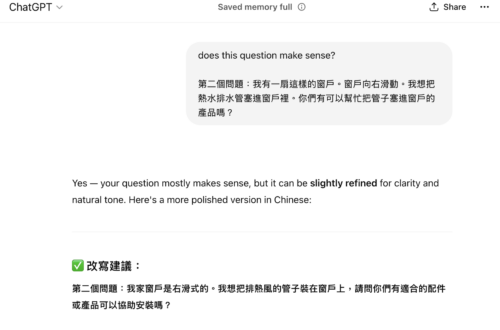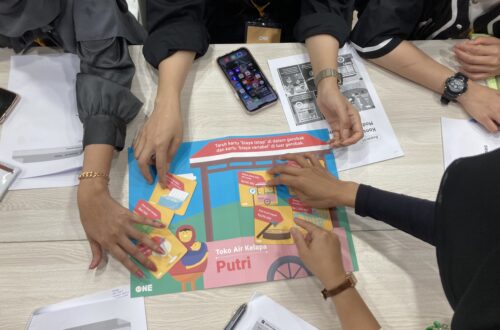Tak kenal maka tak sayang. Tak sayang maka tak cinta.
Knowing leads to caring. Caring leads to love.
– Indonesian proverb
Upon choosing this proverb, I struggled to translate it into English. It’s a well-known proverb in Indonesia and it basically asks this question: “If you don’t try to get to know someone, how can you care about them?” Equally, if you don’t care about them, how can you love them? The reason why it’s tricky to translate is because of these words: tahu vs kenal (to know) and sayang vs cinta (to love).
What’s the difference?
Tahu vs Kenal
It’s actually not as straightforward as tahu (conocer) vs kenal (saber). In Spanish you tend to know (conocer) someone but know (saber) a piece of information. If you kenal someone, then you’re close to them, i.e. they are your family, friends, or significant other. Kenal means that you can talk about their preferences, personality, and life experience. If you tahu someone, then they might not necessarily know you. Because kenal is a relational word whilst tahu is an informational word.
For example:
Saya tahu Pak Jokowi tapi saya tidak kenal beliau.
I know Jokowi (the president) but I don’t know him personally.
Sayang vs Cinta
It’s actually not as straightforward as sayang (storge/philia) vs cinta (eros). Greek distinguishes love between family (storge) and friends (philia) and romantic love (eros). Sayang is often used between friends and family, but it’s used between lovers too. In a similar vein, cinta can be used to describe something other than romantic love, such as godly love. So what’s the difference? Sayang is love accompanied by caring, e.g. the desire to help someone or simply to empathise. Cinta, on the other hand, is a mixture of kasing sayang, caring, and the desire to own someone; thus, it’s often used in romantic love.
For example:
Ibu mencintai (cinta) ayah dan menyayangi (sayang) saya.
Mum loves dad and loves me.
In short: Tak kenal, maka tak sayang. Tak sayang maka tak cinta.
(literally: Not know therefore not love. Not love therefore not love.)
Perkenalan: Getting to Know Someone
1. Siapa namamu? = What’s your name?
Who name[-mu=your]?
- Siapa (interrogative) = who
If you’re speaking to someone older than you, don’t use the pronoun -mu; instead, replace it with Bapak/Ibu/kakak/etc.
Nama saya Sari. / Namaku Sari. = My name’s Sari.
2. Apa arti namamu? = What’s the meaning of your name?
What meaning name[-mu=your]?
- arti (noun) = meaning
Artinya “kenikmatan” dalam bahasa Arab. = It means “pleasure” in Arabic.
3. Apa jenis musik/buku/film/seri kesukaanmu? = What’s your favourite kind of music/book/film/series?
What type, music/book/film/series, ke-like-an(noun)[-mu]?
- jenis (noun) = type
- buku (noun) = buku
- seri (noun) = TV series
- kesukaan (noun) = like [to like (verb) + ke-an confix]
The ke-an confix is used on verbs and adjectives to create nouns.
Saya/Aku suka film lama. = I like old films.
(slang) Aku demen nonton seri Netflix. = I like Netflix series.
(slang) Aku seneng banget dengerin Kunto Aji. = I love listening to Kunto Aji.
4. Hobimu apa saja? = What are your hobbies?
Hobby[-mu] what else?
- gambar (verb) = to draw
- nyanyi (verb) = to sing
Hobi saya menggambar dan bernyanyi. = My hobbies are drawing and singing.
(slang) Hobiku ngegambar dan nyanyi.
5. Kamu suka olahraga? = Do you like sports?
You like sports?
- olahraga (noun) = sports
Iya, saya/aku suka olahraga di gym. = Yes, I like exercising in the gym.
6. Kamu bisa bahasa, apa saja? = What languages do you speak?
You can language what else?
- bisa (verb) = can
- bahasa (noun) = language
*Note that you don’t need to include bicara (to speak) in the question
Saya bisa bahasa Jerman dan Perancis. = I can speak German and French.
7. Kamu tipe orang seperti apa? = What’s your personality like?
What type person like what?
- tipe (noun) = type
- orang (noun) = person
- seperti (prep) = like
- agak (adv) = a bit, a little
- pendiam (adj) = quiet (person)
Saya agak pendiam. = I’m a bit quiet (not talkative).
8. Kamu suka…? = Do you like…?
You like…?
Examples:
Kamu suka jalan-jalan? = Do you like walking / going for a walk / travelling?
Kamu suka nonton Marvel? = Do you like to watch Marvel?
Kamu suka main game? = Do you like gaming?
9. Menurutmu…? = Do you think…?
According to[-mu]…?
- turut (verb) = to follow
- ide (noun) = idea
- bagus (adj) = good (inanimate and intangible objects)
Menurutku ini ide yang bagus. = I think it’s a good idea.
10. Agamanya apa? = What’s your religion?
Religion[-nya, the] what?
- agama (noun) = religion
You will probably hear this question when you’re in Indonesia. It’s a very common question as religion plays a huge role in this country. If you’re irreligious, it might be a bit difficult to explain it in Indonesian. Most people just choose a common religion to answer strangers.
- Muslim
- Kristen
- Katolik
- Hindu
- Buddha
Don’t forget to say “salam kenal” (nice to meet you)!
Discover more from Elhana S.
Subscribe to get the latest posts sent to your email.




Got the 5500betapp on my phone. Works like a charm, no glitches or anything. Pretty convenient for betting on the go. Check it out: 5500betapp
Yo, check out hi8823. The games are fire and the site is legit. I enjoyed it and would recommend it to anyone, See for yourself: hi8823
Just tried out jljl777. It was okay, some jackpots, some losses, such is life. Feel free to give it a try: jljl777
Yo, pincocasino2025 is on my radar. Futuristic name, right? Hoping their games are as cool as the website. Anyone tried their slots? Roll the dice: pincocasino2025
Just putting it out there, MM68 has been pretty good to me. Easy to navigate, and I haven’t had any major issues. Solid option for some casual gaming! Check them out! mm68.
Alright folks, tried Phsky.com recently. Not bad, not bad at all. Seems to be a decent variety of options. Give it a look if you’re looking for a new place to play. What do you have to lose? phsky.com.
R33win, eh? Spent some time there. Not a bad little platform. Give it a try if you looking for some chill online games r33win.